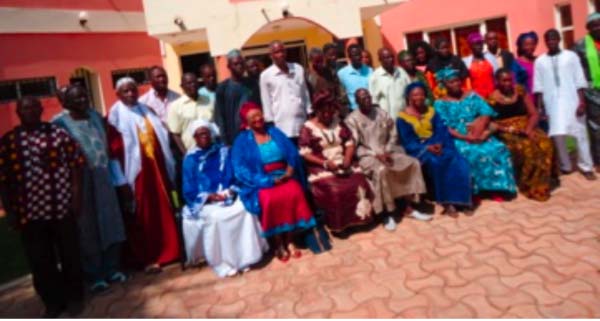
The forum brought participants from various farmers’ organisations and civil society organisations, and was held at the Creek Resort Hotel.
The general objective of the meeting was to strengthen the capacities of the CSOs in The Gambia within the framework of the AGIR process, in order to enable them effectively intervene in the inclusive dialogue and make relevant proposals to the government for the definition of The Gambia’s resilience priorities.
The purpose, among others, was to develop strategies within the network on agriculture resilience, and the specific objective was to present the AGIR process, the regional consensus and sensitizing national CSOs, AGIR,national technical teams members and non-members with a view to increasing their level of knowledge on the region’s engagement regarding resilience.
Another purpose was to present the country support approach and involvement of the relevant actors at the national level in order to accompany states, empower national members of the AGIR civil society network to work with the other CSOs to prepare a national CSO project to take into account in the national resilience programme, and to know the status of the process and calendar at The Gambia’s level.
The expected outcome would be to share understanding of the AGIR process, an understanding of the country approach to better conduct the support mission, and to make a joint proposal for the formulation of country resilience priorities by the civil society.
Opening the meeting, the permanent secretary at the Ministry of Agriculture, Sherifo Bojang, said the recurrence of food crises in Africa has led to a paradigm shift to address food insecurity as a global phenomenon.
The Africa region or parts faced food crises intermittently every two years, he said, adding that sometimes these crises led to massive intervention by the development partners.
In most cases, technical and development aid are turned to emergency support to the detriment of development projects and programmes, PS Bojang said.
The persistence of food crises, as well as the ineffectiveness of approaches for their resolution calls for a new strategy, he continued.
To tackle this recurring crises in line with the existing policies, West Africa and EU have developed a new approach focused on resilience called AGRI, adopted in October 2012, he added.
PS Bojang further said that the inclusive network as been set up with particular participation of the civil society organizations from the 12 to 13 May 2014 at Ouagadougou.
This meeting enabled the CSOs to define strategies of involvement in partnership with other stakeholders, he continued.
The process of designing and introduction of the approach for this ROPPA programme in partnership with RBM, and AGIR came together and agreed on a common approach for The Gambia, Guinea, Guinea Bissau, Liberia, and Burkina Faso, he said.
The meeting aimed at helping The Gambia to catch up with experience and lessons learnt from experts from ROPPA and RBM, and to better intervene in the process of inclusion and make better proposals for the country resilience priorities.


